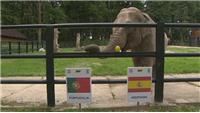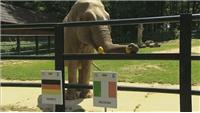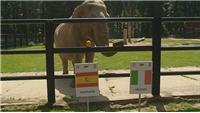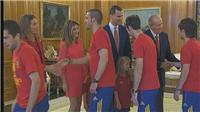

KIDS ARE ALRIGHT ... Tom Cleverley and Chris Smalling are two of the young stars to emerge
SO perhaps there WILL be something to thank Fabio Capello for.
That he finally ended the closed shop, caps-for-the-boys mentality that allowed the so-called Golden Generation to laud it for so long.
The hugely influential inner circle that saw David Beckham and trusty lieutenants Michael Owen, Rio Ferdinand and Steven Gerrard run the show under the pliant management of Sven Goran Eriksson.
The break-up of the cartel started with Beckham's axing at the start of Steve McClaren's short and unhappy England reign. It was variously described as brave and foolhardy.
Yes, Beckham would return for a while before being finally phased out by Capello.
It was also Capello who ran the curtain down on Michael Owen's international career when it seemed certain Owen would eclipse Bobby Charlton's England goalscoring record.
It was a highly contentious decision that most of football's opinion makers thought the Italian had got wrong.
In fact, it turned out to be totally correct as the events surrounding the inexorable decline of Owen's powers would prove.
Owen's brutal dropping, though, worked in Beckham's favour.
Capello did not need to think too hard about keeping the former England skipper on or around the scene.
To drop one of England's two golden boys was a move Capello could just about get away with.
To remove both at the same time would have been like putting two of the family pets down at the same time.
But Beckham would go in the end, phased out by an unsentimental manager who refused to get caught up in all the emotional and patriotic discourse on whether England's favourite footballing son would hang on long enough to pass Peter Shilton's record of 125 caps.
And now, as I wrote on Saturday morning, the sands of time appear to be running out for both Frank Lampard and Ferdinand. And why stop there?
What about Gerrard? He may be a couple of years younger than both Lampard and Ferdinand but why should he escape? Surely he is tarred with the same brush? Isn't he equally as responsible for England's chronic under-achievement as the rest?
Lampard's career had the skids put under it last season, first by injury and then by returning too quickly. Now Gerrard has had his time at the top interrupted by an operation on a long-standing groin problem that I can recall keeping him out as long ago as the England-Germany match that closed down the old Wembley in 2000.
Yet he should be fully fit to rejoin the England squad for the game in Montenegro on October 7.
Even on the return from Sofia, with the memory of a half-decent England performance in a new line-up still fresh in the mind, you could detect a growing clamour for his recall. That if there was to be a change to Capello's 4-2-3-1 line-up — apart from the reintroduction of Jack Wilshere — then it should be to facilitate the return of the Liverpool skipper.
That England should make an adjustment to 4-1-2-3 with Scott Parker holding, Wilshere and Gerrard in front and Theo Walcott, Wayne Rooney and Ashley Young ahead of them.
With confirmation Wilshere will be out until November, this clamour will grow. And so cement the feeling in many minds that Gerrard is just a media darling.
This is certainly the way it would have worked in the past. But now? Capello's most interesting observation after the 3-0 win in Bulgaria — in fact, his most interesting observation in months if not years — was that he needed to choose "the players not the name".
Which is what dear, old Sven did the whole time.
Capello would also have noted that Liverpool have hardly struggled in Gerrard's absence.
For England to pick players on form rather than reputation is almost revolutionary.
Which brings us back to Lampard, who Capello said had struggled in his first two games for Chelsea this season.
Then again, Lampard has always been England's favourite whipping boy once the descent into mediocrity and, ultimately, worse set in at the 2006 World Cup in Germany. He always seemed to carry the can for not only the failure of his partnership with Gerrard but the failure of the England team in general.
This got to the point where he was even booed at Wembley.
Why was he singled out? Here is a player who is one of only 19 players to have scored over 20 goals for England.
And a player who took on the onerous and confidence-sapping job of penalty taker.
But singled out he was. For two generic reasons.
The failure of West Ham fans to ever forgive him leaving Upton Park and the unpopularity of Chelsea once Roman Abramovich's billions changed the landscape of English football. While Lampard heads in one direction, England are hopefully moving in another.
Yes, a really poor Bulgarian team offered scant resistance in Sofia last Friday. In that context, to talk of new dawns is as futile as it has been on so many other occasions.
But there did appear to be a pace and urgency about Capello's team that we haven't seen since the 2010 World Cup qualifying process (not that that did us much good when it came down to the sharp end of the business).
It will be interesting, though, to see how the same team that flourished on Friday copes with Wales at Wembley. And it's not Wales so much as the famous stadium that could be the problem.
Since demolishing Bulgaria 4-0 a year ago, England have shown familiar, old weaknesses at Wembley — held to draws by Montenegro (0-0), Ghana (2-2) and Switzerland (2-2) plus a 2-1 defeat by a France side making significantly greater progress than England after their own dismal showing in South Africa.
How this "new" England copes with the pressure of home turf will tell us a lot about its character.
It will also give us a clearer indication of what part the remaining members of the old brigade have to play at Euro 2012.
- Arbeloa: Spain must never change their style
- Wedding bells turn Iniesta's legs to jelly
- Pele: Brazil's 1970 World Cup winners better than Spain
- Pirlo: Only Spain are superior to Italy
- Spain disproved boring tag with empathic final win, insists Alonso
- Fernando Torres revels in Euro 2012 crown
- Italy can reach the final at World Cup 2014
- Johan Cruyff: I enjoyed Italy and I'm a big fan of Del Bosque's Spain
- De Gea & Mata named in Olympics squad
- Shevchenko: Euro 2012 was a success for Ukraine
Hot News
- Funny Balotelli!
- Spanish fans celebrate Euro Cup win
- That's German WAGS!
- The sexy female fans in Euro 2012
- Euro 2012: Spain fans celebrate victory
- Spain vs Italy in clash of the Euro WAGs
- Euro 2012 Final - Spain 4 : 0 Italy, Part 2
- Germany knocked out by Italy
- Natalia Siwiec blasts Sol and the BBC
- Coleen Rooney reveals her bikini body secrets
- Italy's fans celebrated wildly
- Euro 2012 Final - Spain 4 : 0 Italy, Part 1
| Rank | Team | W/D/L | Pts |
|---|
Cities & Stadiums
The Top 3 Teams of Previous Tournaments
| Year | Winners | Runner-up | Third place |
|---|---|---|---|
| 2008 | Spain | Germany | Russia / Turkey |
| 2004 | Greece | Portugal | Netherlands / Czech Republic |
| 2000 | France | Italy | Netherlands / Portugal |
| 1996 | Germany | Czech Republic | France / England |
| 1992 | Denmark | Germany | Netherlands / Sweden |
| 1988 | Netherlands | Soviet Union | Italy / West Germany |
| 1984 | France | Spain | Denmark / Portugal |
| 1980 | West Germany | Belgium | Czechoslovakia |
| 1976 | Czechoslovakia | West Germany | Netherlands |
| 1972 | West Germany | Soviet Union | Belgium |
| 1968 | Italy | Yugoslavia | England |
| 1964 | Spain | Soviet Union | Hungary |
| 1960 | Soviet Union | Yugoslavia | Czechoslovakia |




